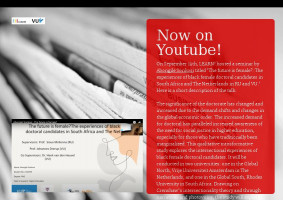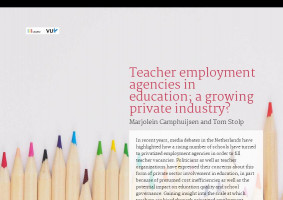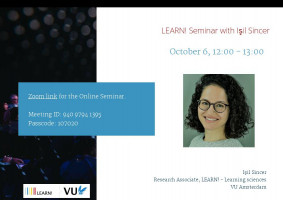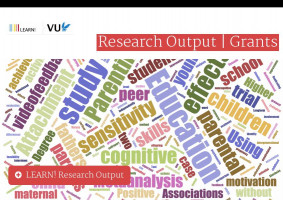In recent years, media debates in the Netherlands have highlighted how a rising number of schools have turned to privatized employment agencies in order to fill teacher vacancies. Politicians as well as teacher organizations have expressed their concerns about this form of private sector involvement in education, in part because of presumed cost inefficiencies as well as the potential impact on education quality and school governance. Gaining insight into the scale at which teachers are hired through privatized employment agencies forms an important first step towards understanding the impact of the employment industry on public education.
Privatized teacher employment agencies in education: potential benefits and pitfalls
Private employment agencies source teachers to schools. Instead of signing an employment contract with the organization where the teacher works (i.e. the school), the teacher signs a contract with a third-party (i.e. the employment agency). In convincing teachers of the benefits of signing such a contract, private employment agencies often refer to greater flexibility in working hours/days and higher pay, as well as the opportunity of working in multiple locations and spending most time on teaching tasks (thereby avoiding for example administrative tasks or other responsibilities that derive from being employed by the school itself). Towards schools, employment agencies emphasize the possibility of saving time and resources on teacher recruitment processes, while they ensure the ‘right fit’ is found. Overall, it has been argued that employment agencies, who claim to be able to quickly fill vacancies that require specific knowledge, can contribute to the continuity of education. Moreover, schools presumably enjoy greater flexibility in letting go of teachers when services are no longer needed.
Despite these potential benefits, the growth in the number of private employment agencies, often in contexts that face significant teacher recruitment and retention challenges, has sparked a heated debate about the potential pitfalls of private sector provision of teaching services. A number of scholars have pointed towards cost inefficiencies in hiring teachers via an employment agency, while also the limited influence of teachers on the conditions of employment has been highlighted. Concerns have moreover been raised about the potential impact of an increasing number of temporary teachers, who might be less involved in the school or motivated to embed themselves, on education quality and school governance.
Are we witnessing an increase in reliance on teachers sourced by private agencies in the case of the Netherlands?
While it is clear that increased involvement of the private sector in the provision of teaching services can have important implications for public education, a limited understanding prevails of the magnitude of current reliance on teachers sourced by private employment agencies, as well as of the precise consequences hereof. This limited understanding might relate to difficulties in gaining access to reliable measures on the scale of this phenomenon.
In the case of the Netherlands, different studies have attempted to get a sense of the size of the teacher employment industry. For example, De Wit, Stuivenberg and Van der Ploeg (2014) relied on a survey administrated to school boards in the Netherlands to estimate reliance on employment agencies by schools and school boards. In doing so, they showed that in 2014 the majority of all sampled school boards in the Netherlands had hired teachers through an employment agency, while most boards also anticipated increased reliance on such contract constructions in the near future.
More recently, a report administrated by the Ministry of Education, Culture & Science relied on data on the expenditures of school boards on teaching personnel. Based on a sample of school annual reports, the authors show an increase in school expenditure on temporary work. However, here it is unclear whether this is due to increased costs or an increase in the number of temporary teachers.
In a forthcoming study, we decided to rely on a large and nationally representative labor survey to depict developments in reliance on teachers sourced by private agencies. This survey is administered by the Central Bureau of Statistics Netherlands and follows approximately 111.000 individuals each quarter as of 2003.
A benefit of doing so is that we are able to estimate the frequency and share of temporary teachers in the Netherlands up to 2021, while not suffering from potential nonrandom sampling and using sampling weights to estimate population frequencies and shares. In doing so, we show that there is an upward trend in the number and share of temporary teachers until 2019. From 2019 onwards, the trend seems to stabilize or even move downwards. We can only speculate about what drives this initial increase and subsequent decrease in reliance on temporary teachers.
What’s next?Despite the uncertainty that remains surrounding the precise magnitude of current reliance on teachers sourced by private employment agencies, the different conducted studies indicate that the teacher employment industry has grown over time in the Netherlands. The potential implications hereof demand that future research into this phenomenon is needed. We however emphasize that such research would need to move beyond evaluations of the capacity of private agencies to meet demand and at least pay attention to the following questions:
- How can we explain trends and developments in reliance on temporary teachers sourced by private agencies in the education sector?
- What is the impact of reliance on temporary teachers sourced by private agencies on the ongoing teacher shortage crisis?
- What characterizes and motivates teachers to work for an employment agency?
- What is the impact of reliance on temporary teachers on educational processes, quality, and outcomes?To be continued..










